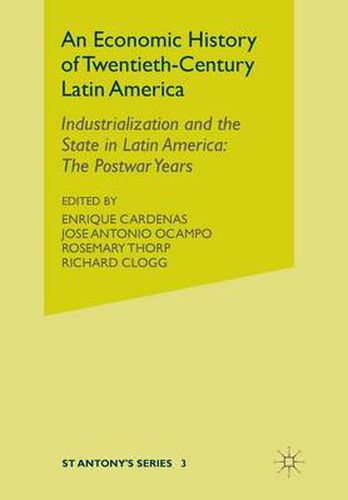Readings Newsletter
Become a Readings Member to make your shopping experience even easier.
Sign in or sign up for free!
You’re not far away from qualifying for FREE standard shipping within Australia
You’ve qualified for FREE standard shipping within Australia
The cart is loading…






This title is printed to order. This book may have been self-published. If so, we cannot guarantee the quality of the content. In the main most books will have gone through the editing process however some may not. We therefore suggest that you be aware of this before ordering this book. If in doubt check either the author or publisher’s details as we are unable to accept any returns unless they are faulty. Please contact us if you have any questions.
In the 1990s, ‘protection’, ‘import substitution’ and ‘intervention’ have become dirty words, part of the ‘leyenda negra’ of Latin America development in the postwar period. This book attempts a fresh look at the controversial years between the end of the Second World War and the point when, at varying dates in different countries, a discontinuity occurs in which the postwar ‘style of development’ ceased to play a central role in the economic evolution of the region. The analysis is based on seven case studies covering eleven countries.
$9.00 standard shipping within Australia
FREE standard shipping within Australia for orders over $100.00
Express & International shipping calculated at checkout
This title is printed to order. This book may have been self-published. If so, we cannot guarantee the quality of the content. In the main most books will have gone through the editing process however some may not. We therefore suggest that you be aware of this before ordering this book. If in doubt check either the author or publisher’s details as we are unable to accept any returns unless they are faulty. Please contact us if you have any questions.
In the 1990s, ‘protection’, ‘import substitution’ and ‘intervention’ have become dirty words, part of the ‘leyenda negra’ of Latin America development in the postwar period. This book attempts a fresh look at the controversial years between the end of the Second World War and the point when, at varying dates in different countries, a discontinuity occurs in which the postwar ‘style of development’ ceased to play a central role in the economic evolution of the region. The analysis is based on seven case studies covering eleven countries.